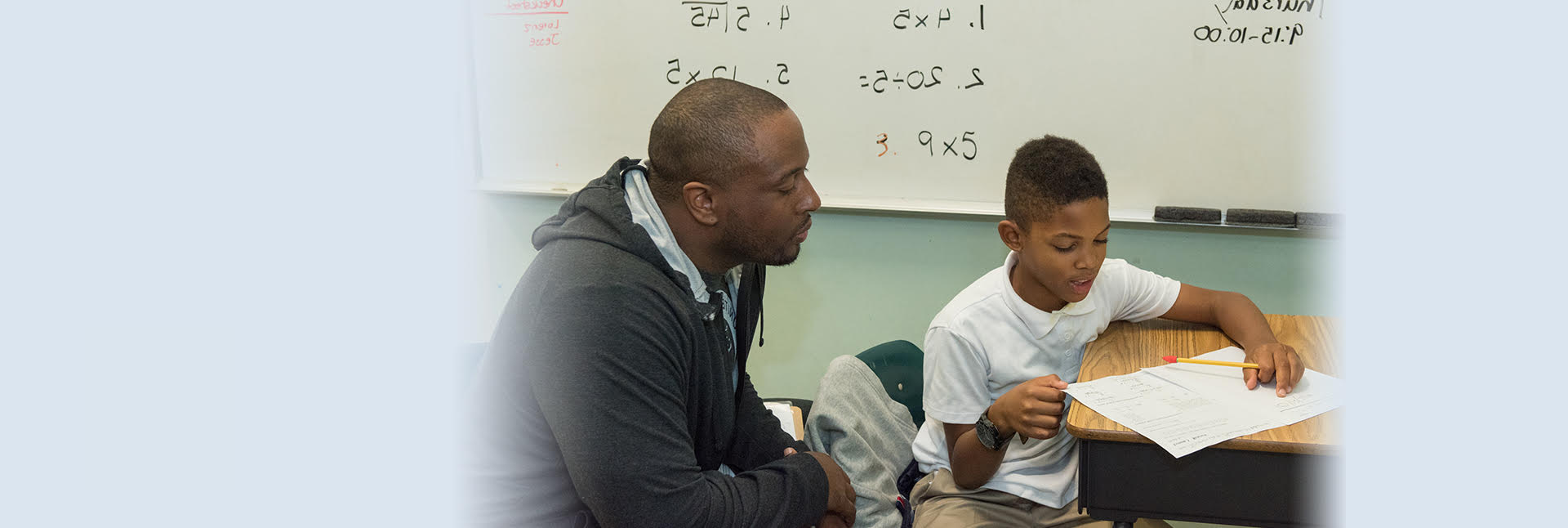Programs & Services
Programs
From elementary school to high school and beyond, our programs empower students to explore and achieve; increasing their confidence, academic and social skills, and joy in learning.
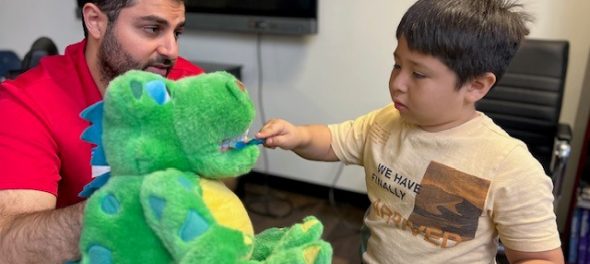
Elementary School Program
The elementary school program consists of students in grades kindergarten through fifth who receive general education curriculum. Our self-contained classrooms vary by student need in order to effectively serve students with emotional/behavioral challenges, specific learning disabilities, as well as students who exhibit autism spectrum disorder. Each elementary classroom is staffed with a credentialed teacher and a highly-trained teacher’s assistant. The students in the elementary program have the support of the behavioral staff.
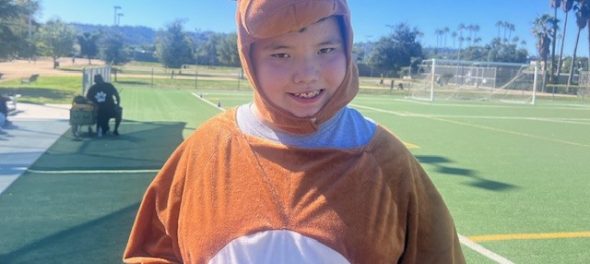
Middle School Program
The middle school program consists of students in grades sixth through eighth who receive general education curriculum. Our self-contained classrooms vary by student need in order to effectively serve students with emotional/behavioral challenges, specific learning disabilities, as well as students who exhibit autism spectrum disorder. Accommodations and modifications may include transitioning to other classes to meet students’ individual needs. Each middle school classroom is staffed with a credentialed teacher and a highly trained teacher’s assistant. The students in the middle school program have the support of the behavioral staff.
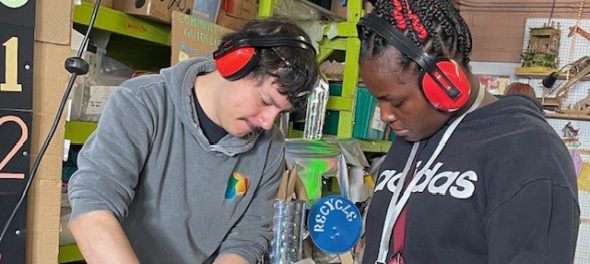
High School Program
The high school program follows common core standards for academics with individualized modifications and accommodations for each student’s ability level. The homeroom teachers serve as case managers committed to maintaining communication with families, outside therapists and other members of the student’s educational team. High school students are working toward the attainment of a high school diploma, taking A- G courses with accommodations. The school team, which includes teachers, therapists, administrators, related service providers and support staff, collaborate to help students meet graduation requirements, provide transition planning, college readiness and vocational preparation.
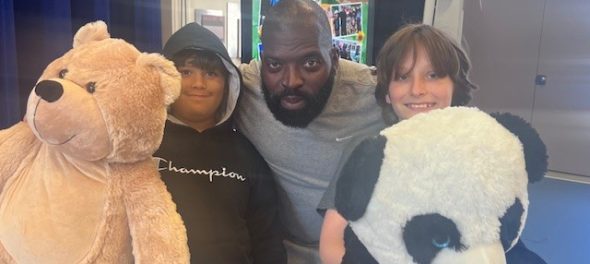
Extended School Year Program
The purpose of the Extended School Year (ESY) Program is to assist students in maintaining the skills at risk of regression and in the recoupment of the critical skills or self-sufficiency goals essential to the student’s continued progress.
These services are held during the summer months and are individualized to help each child maintain their skills and not lose the progress made toward their goals. For some students, this may mean small class instruction, one-on-one tutoring and enriching activities that are designed to foster creativity and promote lifelong wellness. Students continue to receive related services provided during the regular school year with primary focus on student's IEP goals.
ECF Kayne Eras School is committed to providing an educational environment that challenges, nurtures, excites and involves every student as they progress towards their goals.
Enrichment Program
The Enrichment Program was founded to foster development of the multiple intelligences we all possess. Activities complement traditional academics and promote child development. Activities offered through the Enrichment Program each year can include performing and visual arts, art contests, technology education, financial education, culinary education, vocational training, self-defense, doggy therapy, community service, athletics, team sports, spelling bees, and a birthday and holiday book program.
Read More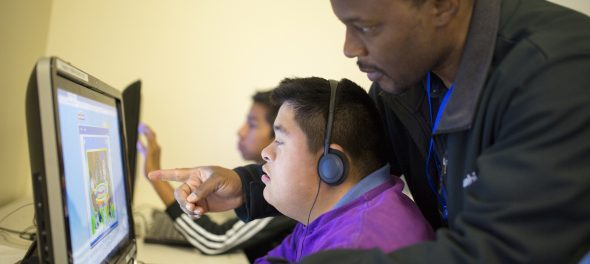
Alternative Curriculum
Our Alternative Curriculum Program serves students who are working toward a certificate of completion as identified by their IEP. Within this collaborative system, administrators, faculty and related service personnel work together to create individualized academic programs for each student. Team members typically include: credentialed teachers, licensed speech and language professionals, occupational therapists, as well as licensed therapists and behavioral support staff. These classes integrate Applied Behavior Analysis, developmentally-based social skills programs, vocational opportunities, extensive transitional studies, and collaboration with other ECF programs. Each member of the educational team is dedicated to helping our students in the Alternative Curriculum Program become independent productive members of the community-at-large.
Services
ECF Kayne Eras School provides a full range of individualized services to support student wellness and success.
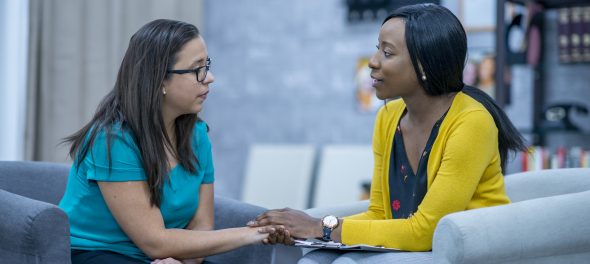
School Clinical Services
Kayne Eras School offers counseling services as indicated by each of the students’ Individualized Educational Plans (IEPs). School Counselors are all Masters-level clinicians who are dedicated and passionate about their work. The School Counseling Department provides individual, as well as group counseling, with a focus on helping our students manage their emotional and psychological challenges so that they can reach their highest academic potential, improve their social relationships and learn to feel good about who they are. KES school counselors remain in regular contact with the students’ caregivers and often liaison with other resources including outside therapists and different social services. In addition, our counselors are involved in assisting students with vocational skills such as resume writing, interviewing, and participation in our WorkAbility or other ECF Vocational Programs. Counselors also guide the students in exploring and applying to colleges and trade schools. The goal is to assist all of our students with finding fulfillment and personal success.

Mental Health Services
ECF Kayne Eras School students have an opportunity to receive services through the ECF Mental Health Services Program. ECF’s Mental Health Program provides community-based mental health services to eligible students in both English and Spanish. Services may include individual therapy, family therapy, group therapy, case management, rehab services and medication support. Services are easily accessible and can be provided at the Kayne Eras Center in Culver City, at the client’s home, on many school campuses, or elsewhere in the community. To qualify for services, the student must have full-scope insurance through Medi-Cal.
ECF’s clinicians are trained in a variety of therapy models and several evidence-based practices. These practices are research-based and effective for trauma, depression, anxiety, behavioral problems, relational problems, and difficulty adjusting to new or stressful situations, such as parental divorce or the transition from high school to college. Additionally, ECF clinicians are trained in play therapy and family therapy to increase engagement and improve treatment outcomes.

Speech and Language Therapy
The Speech-Language Pathologists at Kayne Eras School assess, diagnose, and treat speech and language deficits/delays and social and cognitive communication disorders in children and adults. The speech therapy team provides tailored treatment plans to address expressive and receptive language disorders, cognitive impairments, motor speech disorders, and pragmatics skill deficits. Speech pathologists collaborate with other professionals including teachers, therapists, and counselors to establish measurable goals and support a student’s needs. Therapy techniques include the most efficient and evidence based treatment to remediate students’ difficulties and to achieve measurable success. The goal is to improve the students’ quality of life by strengthening their skills for improved communication and self-care outside of the therapy room.
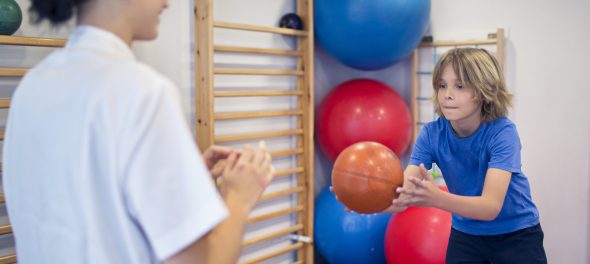
Occupational Therapy
The Kayne Eras School occupational therapist is a key contributor within the education team. Occupational therapists support a student’s ability to participate in desired daily school activities or “occupations.” They help children to fulfill their role as students by supporting their academic achievement and promoting positive behaviors necessary for learning. School occupational therapists address underlying difficulties that are impacting a student's ability to achieve academic and non-academic outcomes, including social skills, math, reading and writing, behavior management, recess, self-help skills, prevocational/vocational participation and more. Occupational therapists in the school setting are guided by a student's unique IEP plan. They strive to help the student achieve their goals in order to reach their full potential.
